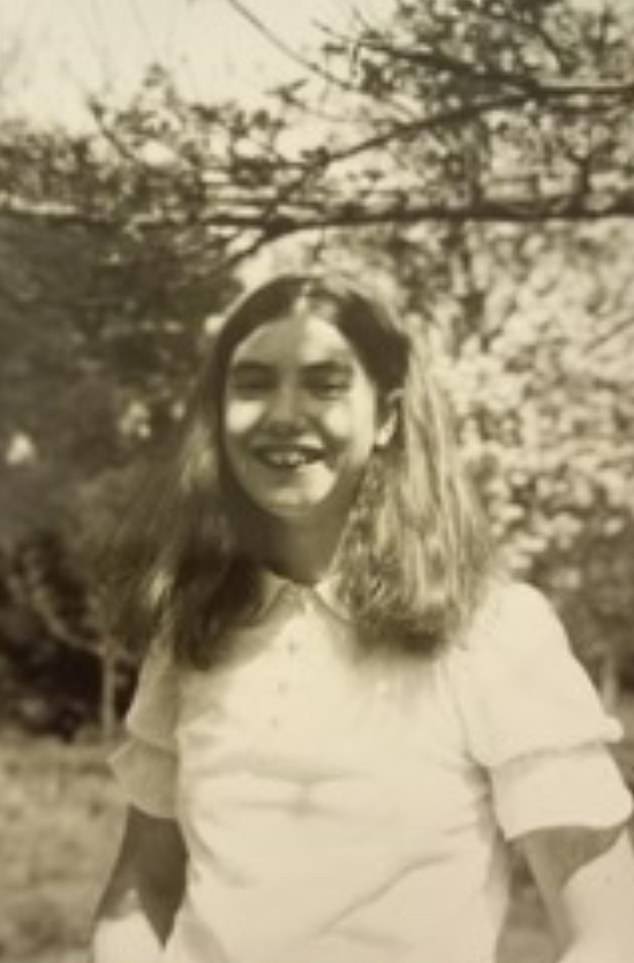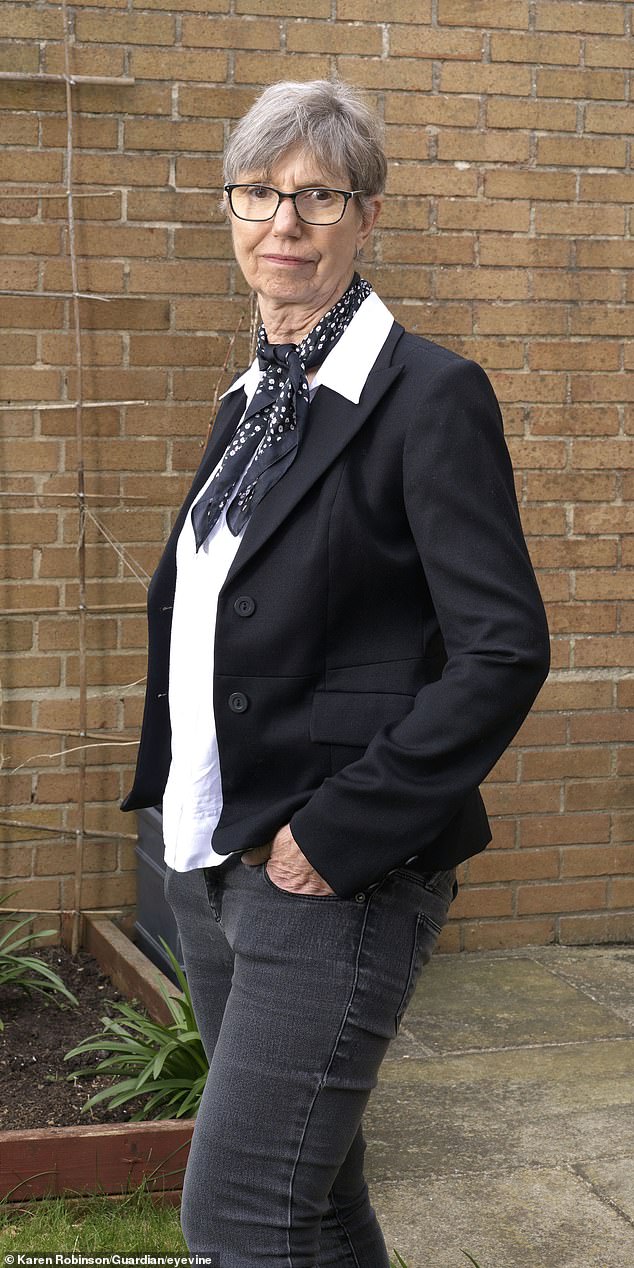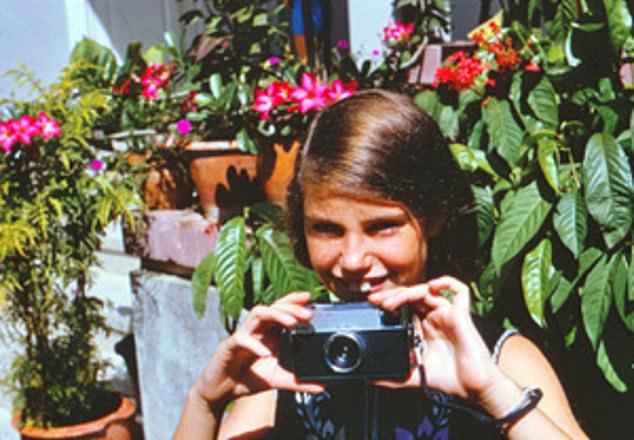Lying in the darkness, the loneliness and panic hit. It was terror, mostly, of the dormitory bullies who could strike without warning or reason. Also the cruelty of the matrons, picking up on some minor infringement. And that all-consuming feeling of abandonment.
The nightmare of boarding school was beginning, all over again. This may sound familiar to many of the alumni of this very British institution, particularly those who boarded in the 1970s like I did. But the dread and horror I was experiencing was not due to revisiting my own school.
I had, in fact, just dropped my 11-year-old daughter Rachel off at the Royal Ballet School in London, where she was to be a boarder.
You may well ask why I sent my own child to boarding school when I’d hated it so much. But dancing was her dream and I didn’t want to stand in her way.
Thankfully, Rachel loved her time there. For me, however, sending her away unlocked a Pandora’s box of suppressed memories and trauma that saw me spiral towards a suicidal breakdown. Throughout my daughter’s time there, I struggled with mental illness to such an extent that I was in and out of psychiatric hospitals.
In fact, I am only just recovering almost 50 years after my own school years ended.
Yet, to the outside world, boarding school was the making of me; I am a doctor with a great husband and four lovely children.
My parents, neither of whom had gone to university, were certainly very proud to be able to send me there. They regarded a boarding school education as one of the greatest privileges of all.

Dr Cathy Wield was nine years old when her parents sent her to a UK boarding school from Kenya

Dr Wield is only just recovering almost 50 years after her own school years ended
I was the second of four children and my mother Jane stayed at home to raise us as we travelled the world with my father George, a diplomat.
We were living in Kenya when, aged seven, I watched my 11-year-old brother board the plane to the UK in his smart new school uniform. I couldn’t wait for my turn.
Having devoured books about life at boarding school, I was excited about the fun in store.
Two years later I was preparing for my own journey. I paid no attention when my brother said sombrely: ‘It’s not going to be what you think.’
Yet the cold reality of being sent 5,800 miles away from home aged just nine soon hit me. The moment I stood in my dormitory, abandoned and alone, is seared in my mind.
I remember standing by the small metal bed, my panic rising as I sobbed and gasped for air.
I took in the bare, cold room, and knew my beloved books had lied. There weren’t going to be any midnight feasts and jolly japes. My childhood had ended, and an eight-year-long nightmare only just begun.
There were no hugs or smiles for a frightened little girl far from home. This was an institution, where rules and regulations meant everything. Each toothbrush, slipper and book had its proper place, and you ate what you were given and did exactly what you were told.
The first awful day ended with my six dorm-mates gathering around to gleefully ask: ‘Do you know where babies come from?’ Seeing my hesitation, they launched into a graphic lesson on sex, puberty and periods. In shock, I clutched my only teddy, sobbing myself to sleep as quietly as I could.
In the weeks that followed, I couldn’t understand what my parents had done. I was such a sensitive child that they’d forbidden me to watch the film Oliver! in case it gave me nightmares.
It was like Lord Of The Flies, yet the matrons didn’t care; it was as if they tolerated the behaviour to keep us girls in line.
Yet here I was, in the hands of strangers who ranged from indifferent to cruel.
Staff were eagle-eyed when it came to rule-breaking but seemed blind to the bullying. In the dormitory there was no escape. One girl was a such a tyrant, she’d whip other children with stinging nettles and holly, force them to eat soap or make them set alarms through the night so they couldn’t sleep.
I escaped that particular torture, but she did pour water over my mattress to make it look like I’d wet the bed. It was like Lord Of The Flies, yet the matrons didn’t care; it was as if they tolerated the behaviour to keep us girls in line.
We were constantly shouted at and belittled by staff, and even tiny infractions came with scary punishments. One night I was caught talking after lights out and made to stand in the cold, dark corridor alone. For a scared, sensitive girl it was terrifying, but I knew enough by then not to let that show.
In my first letters home to my parents, I hinted at how I was feeling, and my heart sank to read the cheerful reply: ‘Don’t worry darling, it’s not long until the holidays.’
Holidays weren’t much of a respite. After the first, euphoric 24 hours came the dread. Every day that passed was one day closer to my return. When I tried to talk about what was happening at school, my father would laugh good-naturedly, and say: ‘It’ll do you good, toughen you up.’
I was so distraught to go back to boarding school, that for every return journey I had to be tranquilised; Valium was the only way to calm me down enough to get on the plane.
As the years passed, the bullying ended, but the misery, isolation and sense of abandonment never disappeared. Throwing myself into academic work proved a kind of escape, and gained me some desperately needed praise from the adults in my life.
The minute I left to start medical school at St George’s in London, I took all my terrible memories, locked them in a box and swore to never look back.
But those years hadn’t just robbed me of my happiness. The loving bond I’d once had with my parents was completely severed, caused by both physical distance and my unspoken anger towards them for sending me there.

Having devoured books about life at boarding school, I was excited about the fun in store, says Dr Wield
However, I knew that training to be a doctor meant I was seen as a success – in their eyes and everyone else’s – and so it made any ill-feelings about boarding school seem even more redundant.
A year later I met Peter, the flatmate of a friend, who was clever and kind. I’d never had a boyfriend before and within three weeks we were engaged. Becoming a mother at 22 unlocked something inside me. Holding Rachel, my precious, helpless baby, I felt such love – and determination to protect her; to ‘do better’ than my parents.
My maternal instincts only grew as she was followed by Steve, Natalie and Harry. I made it clear, to myself and to Peter, who’d never been to boarding school, that it would never be an option for our children.
As a trainee doctor life was stressful, but I loved motherhood, especially seeing them develop their own passions. For Rachel that was ballet, and at seven her talent saw her accepted for classes at the Royal Ballet School.
When she turned 11, she was eligible to audition for a place at the school in London, 70 miles away from our home in Southampton.
Although, if successful, she’d ‘only’ have to board Monday to Friday, the very idea made me sick with anxiety.
When we heard that she’d won a place I was equally proud and scared. The thing I’d sworn would never happen was about to begin.
Rachel was absolutely thrilled. How could I deny her the chance to pursue her dream? She’d never forgive us.
I mentally listed all the reasons it would be different for her.
We knew the lovely staff, we’d visited the school and it was a world away from the cold prison from my own childhood. And she’d be back at weekends. Still, as I hugged her goodbye, I couldn’t stop the tears. The relief to see her home and happy that weekend was enormous, but it didn’t calm me.
At night I couldn’t keep the intrusive, painful memories away. I felt like I was being dragged down and couldn’t escape. It didn’t help that my job as a hospital doctor was so gruelling; I’d work up to 120 hours a week, dealing with traumatic cases.
Just a few weeks into Rachel’s first term, suffering with insomnia and exhaustion and the desperate need to talk to someone, I went to a GP.
There, I was simply told I had depression and given Prozac. I wasn’t referred to a counsellor and there wasn’t even a cursory probe into what might have caused it.
At night I couldn’t keep the intrusive, painful memories away. I felt like I was being dragged down and couldn’t escape.
The medication made me feel awful and the next one even worse. Yet my symptoms continued, and for the next seven years my life was consumed by a succession of different medications and psychiatrists.
But still, no one made the connection between what I was suffering and my experiences at school.
Even though I did mention my awful time at boarding school to a number of the psychiatrists and psychotherapists, they seemed to have little or no interest in it.
‘That might have made you more vulnerable,’ they said, ‘but you have an illness.’ It was a chemical imbalance that was making me feel this way, they said, not anything to do with the past.
Even when I told one doctor how, whenever I went on a plane for a family holiday, the sound of take-off reduced me to tears as it brought back the physical terror of returning to boarding school, no one seemed to care.
You may wonder why, as a doctor myself, I didn’t push back. But both boarding school and medical school had taught me a deference to authority.
More importantly, the cocktail of medication quickly made me feel like a zombie. I was left unable to process what was happening, let alone advocate for a different point of view.
Struggling with suicidal thoughts that I later discovered were triggered by the antidepressants, I was admitted to a psychiatric hospital, where the rules, timetables and smells took me right back to the horrors of school.
Over the following years – during which my daughter Natalie joined Rachel at the Royal Ballet School – I was in and out of the wards and given cocktails of drugs.
Between 1994 and 2006, I was also subjected to more than 100 electroconvulsive therapy ‘treatments’, where an electrical current was passed through my brain. Even at the time it was unusual to subject a patient to so many.
In 2001, aged 42 and no closer to recovery, I underwent specialist neurosurgery for mental disorder, which is considered a last resort for severe cases of mental illness. The process aims to destroy small areas of the brain that might cause mental health problems.
Three months later, it was deemed a success when I was allowed home. By then Rachel was 19 and had left home to become a professional ballet dancer. And it was so painful to realise how little the others, then 17, 15 and 13, needed me.
Slowly, I pieced my life back together, restarting medical training and rebuilding my relationships with Peter and the children as best I could.
Doctors had no idea how I had made this level of recovery after the surgery, though I remained on antidepressants for many more years.
In the years that followed, I sought support whenever I needed it. Which is how I found myself, five years ago, sitting opposite my new counsellor – the person I think saved me.
In that first session, I briefly described my childhood and the years of treatment I’d been through. ‘Your initial symptoms coincided with Rachel’s acceptance at ballet school?’ she asked. ‘And you were hospitalised on and off for a period of seven years?’
‘Yes, but I made it home for almost all of the children’s school holidays,’ I replied. After a moment of silence she shook her head and then dropped a bombshell. ‘Cathy, you were never depressed. You had PTSD [post-traumatic stress disorder].’
Stunned, I immediately denied it. It was impossible. How could all those eminent doctors have been wrong?
How, as a doctor myself, had I not made the link, either?
I came to realise she was right. Not just about the extent of the trauma I’d experienced at boarding school, but the triggers.
Dropping my own children to boarding school. Going to and from a cold institution like a hospital to ‘normal’ family life and back again. All of it meant I was being constantly re-traumatised.
At first I felt validated, but then came a wave of anger at all the years I’d lost to unnecessary and traumatic psychiatric treatment.
Taking a deep breath, I called my parents to tell them what I’d learned. It was the first conversation we’d ever had about how boarding school had really impacted on me.
‘I’m sorry,’ Mother said when I’d finished, ‘we just didn’t realise.’
For the first time, I had compassion for their choices. They’d done what they thought was best, just as I had with my girls.
I forgave them, and when Father died five years later, I was so glad he knew that. Mother is now 97 and we’re closer than ever.
As for Rachel and Natalie, then 35 and 33, both successful dancers with families of their own, I told them about what I’d discovered – and how it had only increased my fears about whether I should have let them board. Thankfully, they confirmed what they’d always told us: that we’d done the right thing to let them follow their dreams.
Armed with the truth about my trauma, I’ve been able to move forward. I’ve met other boarding school survivors, have written a book about my experiences,
and support Seen & Heard, an organisation that supports the emotional wellbeing of those attending boarding school and their families.
I know that for many parents, a boarding school education is still the pinnacle of aspiration for their children.
Even though I wish they didn’t exist, especially for under-16s, I don’t judge. We’re all just trying to do the best for our children. I only ask that parents understand the risks and remain vigilant. I know all too well that the impact can last for ever.
At 65, picturing that terrified little girl in the dormitory still brings me to tears. She wasn’t able to speak up, but I can, and I don’t plan to ever stop.
Cathy’s family’s names have been changed. Unshackled Mind: A Doctor’s Story Of Trauma, Liberation And Healing, by Cathy Wield, is out now (£10.99, The Book Guild Ltd).
As told to Kate Graham












